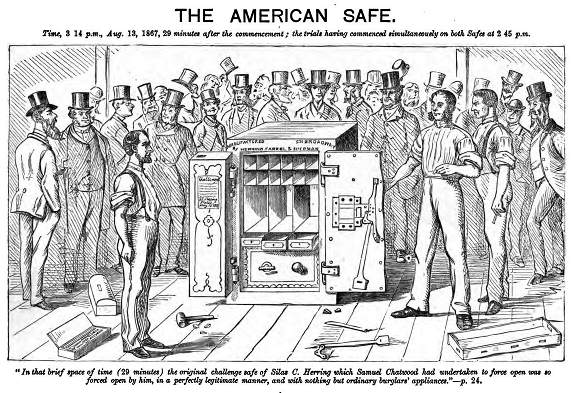I have been going through a phase of reading old, out-of-copyright books partly because I find it fascinating to see how various literary forms evolved over time, partly because if you go back far enough the books read like science-fictionalien concepts and strange customs abound, partly because it allows me to affect an air of being well read, but mostly because you can download them for free from Project Gutenberg and I am a cheap bastard.
A Voyage to the South Sea by William Bligh
 A while ago I read The Bounty by Caroline Alexander, a modern account of Captain Blighs famous-for-all-the-wrong-reasons expedition to Tahiti aboard The Bounty. It focused mainly on what happened after everyone got home again. This book is the tale told by the man himself, compiled by Bligh from his logs kept during the voyage and it is a fascinating read. Even if there wasnt a (spoiler alert!) mutiny, it would make for a cracking story as Bligh has an eye for both nautical detail during the voyage and a keen interest in how Tahitian society (very different to the English system) worked after The Bounty arrives.
A while ago I read The Bounty by Caroline Alexander, a modern account of Captain Blighs famous-for-all-the-wrong-reasons expedition to Tahiti aboard The Bounty. It focused mainly on what happened after everyone got home again. This book is the tale told by the man himself, compiled by Bligh from his logs kept during the voyage and it is a fascinating read. Even if there wasnt a (spoiler alert!) mutiny, it would make for a cracking story as Bligh has an eye for both nautical detail during the voyage and a keen interest in how Tahitian society (very different to the English system) worked after The Bounty arrives.
And breadfruit, the dude was obsessed with breadfruit.
Once the mutiny occurs, the story turns into an epic struggle of survival as Bligh and his few remaining crew find that people treat you differently when you turn up on their island without a fully armed three-masted collier anchored just outside their reef.
It is a real pleasure to drop into the world of a competent person doing an interesting job. Since it is taken directly from his meticulous logs there is a charming matter-of-fact style as things unfold without foreshadowing or subplots. The one problem for a modern reader is that it is almost impossible to avoid hearing the text being read in James T. Kirks Captains Log voice; the style is exactly the same.
A Journey of the Plague Year by Daniel Defoe
 This early novel in the form of a diary purports to be a day-to-day account of the life of a young London man during the 1665 outbreak of the black plague as people were dying in their thousands. Defoe did actually live through the plague but he was only 5 at the time, so the story is fictionalized but obviously carefully researched. Defoe uses the experiences of the narrator to highlight how various aspects of society (the rich, the poor, etc) reacted to the plague, maintaining a detached tone while horrible things are occurring on all sides. The thing that struck me the most was the general atmosphere of resigned bewilderment that permeates the book; nobody in pre-germ theory London really understands what is going on but society continues on as best as it can while people are dropping dead and whole streets worth of houses are empty or contain only corpses.
This early novel in the form of a diary purports to be a day-to-day account of the life of a young London man during the 1665 outbreak of the black plague as people were dying in their thousands. Defoe did actually live through the plague but he was only 5 at the time, so the story is fictionalized but obviously carefully researched. Defoe uses the experiences of the narrator to highlight how various aspects of society (the rich, the poor, etc) reacted to the plague, maintaining a detached tone while horrible things are occurring on all sides. The thing that struck me the most was the general atmosphere of resigned bewilderment that permeates the book; nobody in pre-germ theory London really understands what is going on but society continues on as best as it can while people are dropping dead and whole streets worth of houses are empty or contain only corpses.
After reading lots of disaster fiction (The Day of the Triffids, Dawn of the Dead, etc) I was heartened to see that people do not automatically devolve into angry, paranoid mobs during a real life events that kill a large percentage of the population, although plenty of isolated complete bastardry apparently will occur.
The Battle of the Safes, or, British Invincibles Versus Yankee Ironclads by George Augustus Sala
And now for something completely different. During the Paris Exhibition of 1867 a public relations spat broke out between a British firm of safe makers and an upstart American firm as to who made the safest safes. This was apparently a big deal in an age when people kept large amounts of cash on hand.
The American firm challenged the British to a public demonstration where each firm nominated a crack team to break into the others safe in the shortest possible time. Everything should be simple but the Americans (boo-hiss) keep changing the rules in their favour. Eventually the contest comes to an unsatisfying conclusion but everyone can see that the British (yeay!) have scored a great moral victory.
This is a short, enjoyable, one-sided account of an inconsequential event, filled with all kinds of intrigue and skullduggery. Nothing really gets resolved but it doesnt matter unless you are really into safes (and the illustrations are great.)
